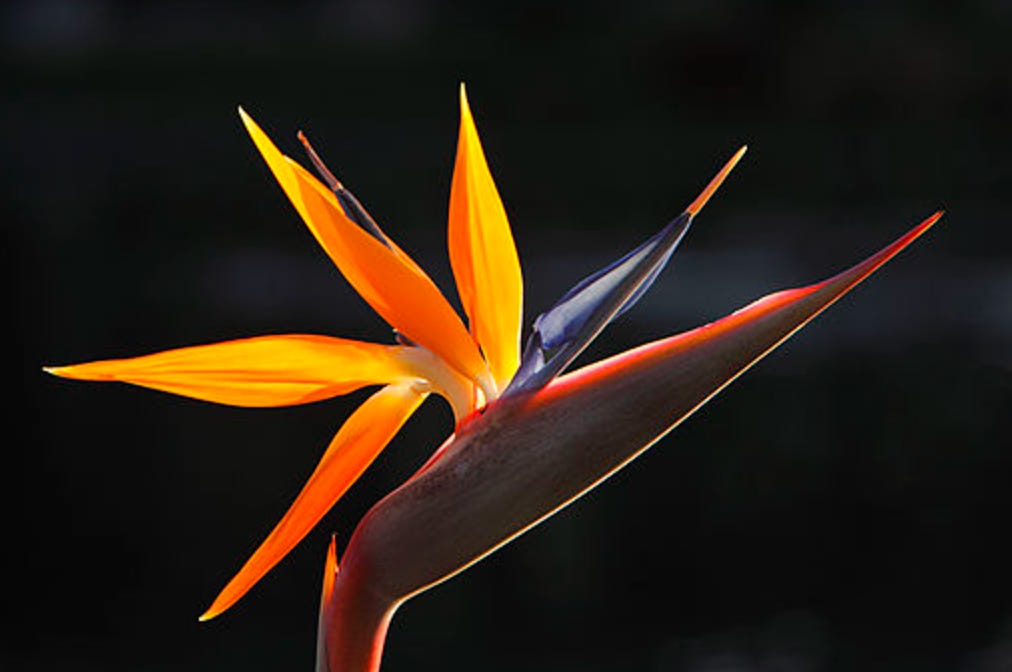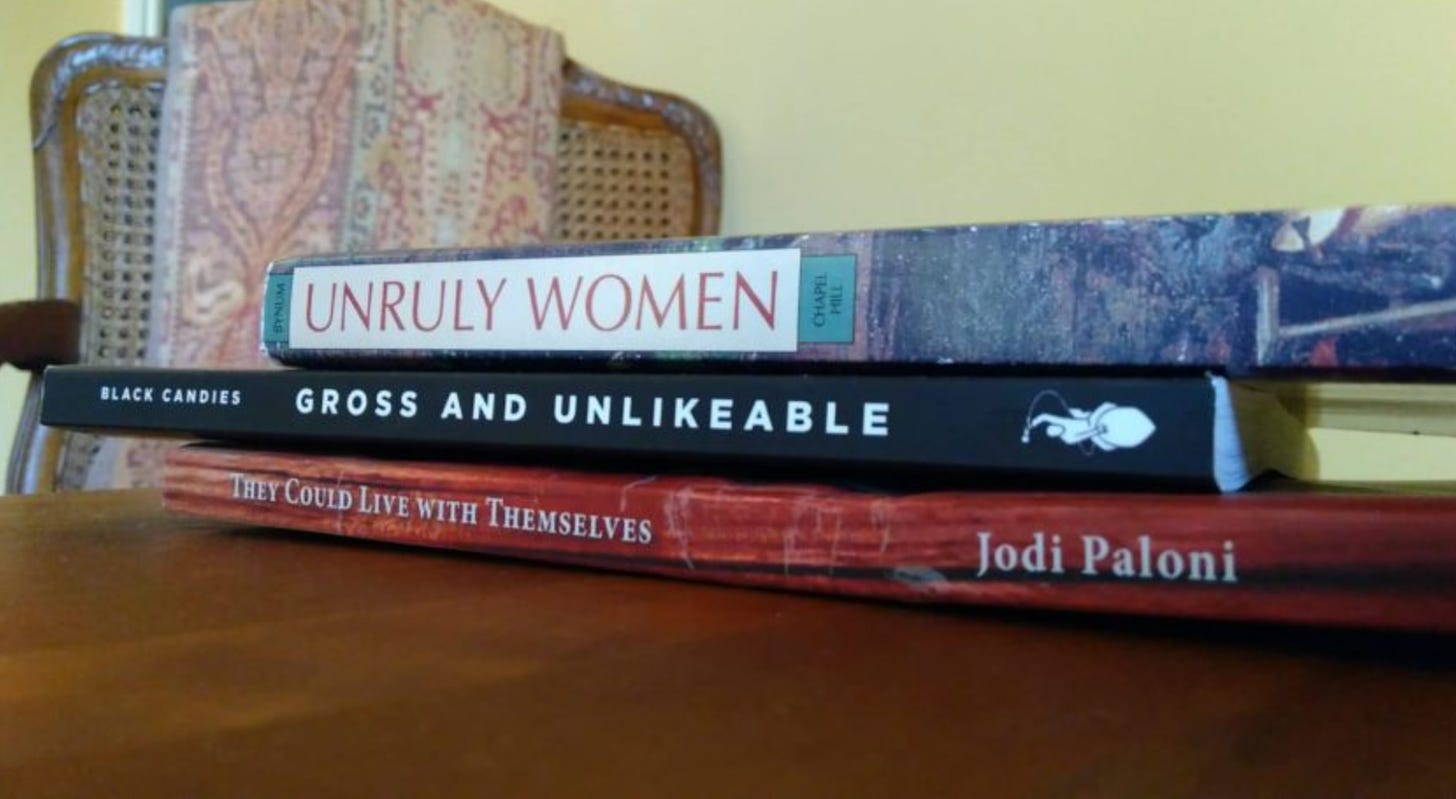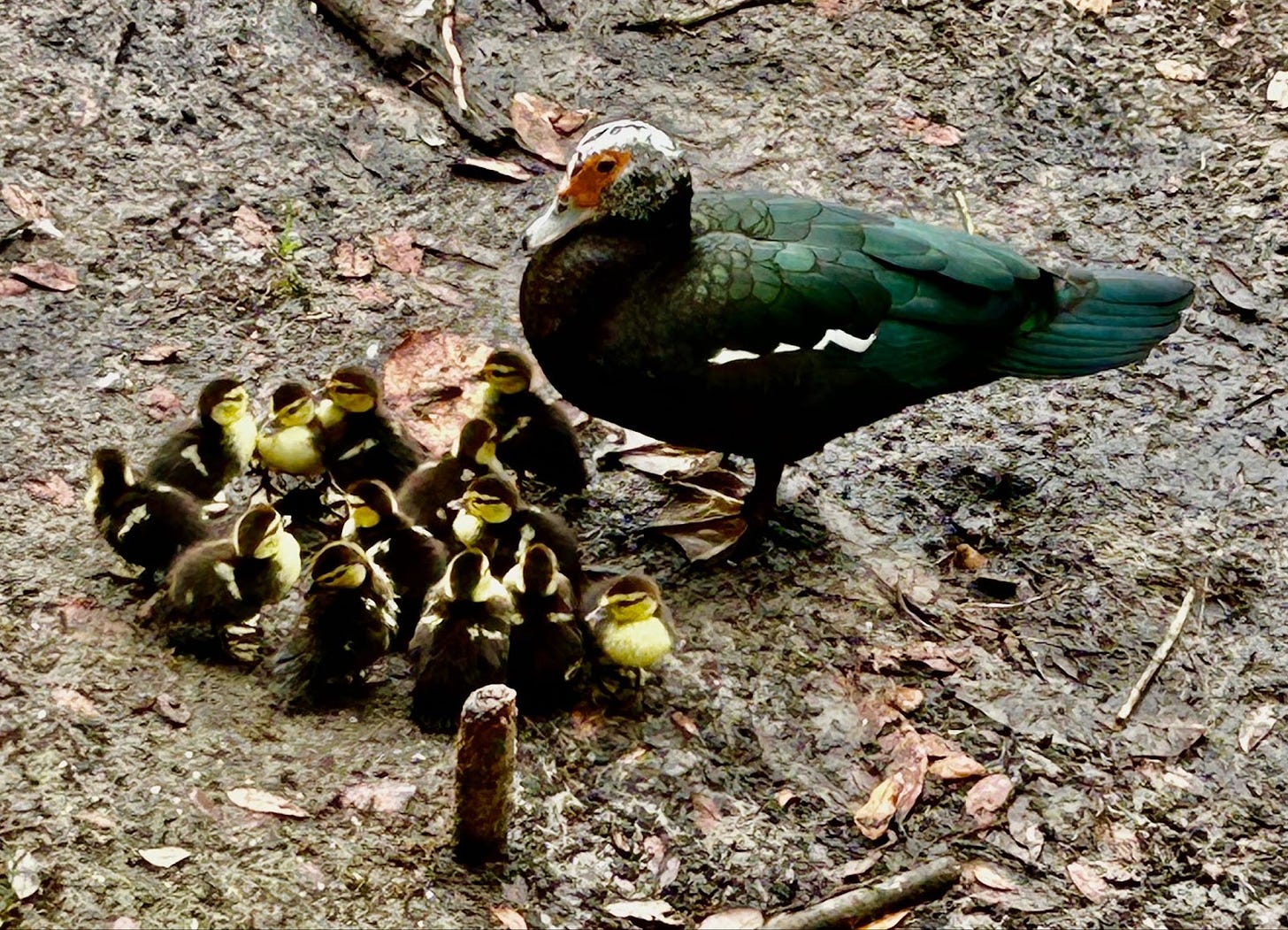Before we begin…
What is the most personal question you’ve ever been asked or asked someone else? What happens when someone asks you a question like this? Is your first reaction to withdraw or does the interest of another person help you open up? What have you learned about yourself and/or another person when one of you has asked something “big” or unexpected?
Welcome! You’ve reached Spark. Learn more here or just read on. If you received this from a friend, please join us by subscribing. It’s free! All you have to do is press the button below. If you have already subscribed, welcome back! If you see something you like, please hit that heart so others can find us more easily. And if this email is truncated in your inbox, just click the headline above to come on through and read everything all at once.
A look back
This month Spark turned four and there are a lot of new folks in the community and more coming every day. I thought it would be fun to revisit the ideas that led to the way I start out each issue of Spark: with some questions. We’ve got to get started somewhere, right? And why mess around? Here’s an excerpt from a post that ran two years ago when this newsletter was only one year old and we were still feeling the constraints of the quarantine and I was still feeling my way as your host.

Small talk
I was at the dentist’s office, my feet raised, head tipped back, my upper lip numbed and so heavy that when I answered the hygienist’s ‘How do you feel?’ It was like lifting a rubber tire over my incisors.
I wanted to make a little joke or smile. All I could do was utter “mime” instead of “fine” while she mopped the drool from the corner of my mouth.
Talk doesn’t get much smaller than that. Dentists and those who work with them are used to holding up the heavy end of most conversations with their clients. Their patter has purpose -- without a pleasant, innocuous word or two all that would fill the space between us is the noise of a drill or my stifled whimpers. I’m grateful for their efforts. I’d love to reciprocate. I like to engage in small talk. It’s safe. It’s easy. As John Wilson put it the first episode of his really wonderful show How To With John Wilson,
“Small talk is the glue that binds us all together and the armor that shields us from each other’s darkest thoughts.”
In one sentence, he sums up the power and the limitations of what we call small talk -- the casual query about the weather, a shared laugh when a puppy does something cute, or perhaps the ritual of a simple good morning to a neighbor. Simple words, a flash of recognition - these feel like enough to ground me in the world -- until they don’t. A steady diet of small talk with people in the outside world-- although exotic enough these days after months of quarantine -- is like living on vanilla wafers when my body craves a rich complicated chocolate mousse with a surprise twist of hot pepper.
Big talk
Small talk is comforting but big talk nourishes me. I can live for a long time on one deep conversation, the kind that leaves me chewing over an idea or reliving a moment just to recall the connection that comes with seeing, however briefly, into another’s life or letting my own shield slip away a little.
I still think of “Nadia” for example, a woman I spent an hour with in Los Angeles several years ago and will never see again. She had no time for small talk. Her life was already hemmed in by a wasting muscle disease, the expectations of her family, and the assumptions of people formed when they viewed her in her wheelchair. She joined my husband and me at our table in a restaurant and observed us closely. “You have a good man,” she said, after some fairly small talk. Then she asked:
Are you in love with him?”
I didn’t have to think but I did have a mouthful of lamb sandwich. “Yes,” I told her as soon as I’d swallowed.
“What does it feel like?” she asked.
At this point, my husband disappeared from my peripheral vision. I don’t know if he left the table or simply leaned back to give her, and himself, the illusion of privacy.
“What does love feel like you mean?” I asked her.
Nadia’s fingers wiggled dismissively on the arm rests of her chair. “Not family love, not friendship. What does it feel like to kiss romantically, to want to go to bed with a man?” (You can read the whole story here: What Nadia wanted.
I tried to answer the best way I could. I know it wasn’t enough. It probably could never be enough. Her question, though, was a gift I’ve never forgotten. She got me to step outside of my comfort zone and dig deep, to look with new eyes at love -- how I experienced it, how others experienced it, and to try to explain how an orgasm felt to a woman who had never had one.
I don’t know what magic occurs to bring about a moment like that but others have thought deeply about the conditions for “deep talk” -- for conversations that actually go somewhere and carry the possibility of actually seeing each other and listening to each other before we are through.
When columnist David Brooks writes about politics, I usually bypass his work but he seems to have been on a personal journey for the past few years. Not infrequently, he offers up what he is learning. He wrote this one, Nine Nonobvious Ways to Have Deeper Conversations, one year around Thanksgiving. I’ve tried a few of the things on the list. They work. My three favorites of the nine: approach with awe, let others be authors, not witnesses, and don’t fear the pause.
Two of the nine “non-obvious ways” are actually obvious when you think about them but are often the hardest to do: ask elevating questions, ask open-ended questions. Some people are shy about asking questions. Others feel put on the spot when they are asked the usual ones: what do you do, where did you go to school, where do you live? These may or may not elicit information but they don’t necessarily lead to connection or understanding.
I don’t know about you but I don’t always know what I’m thinking until I get a chance to explore my thoughts out loud. When someone takes the time to ask me not what I do but what I love to do most, or the strangest jobs I’ve ever had, or what I’ve never done but always wanted to do, I am amazed at what comes out. And grateful. I try to remember it when I encounter others. Because if this year of relative isolation has taught me anything it is that life is too short to waste on small talk. Even though small talk is better than no talk at all.
What about you? What have you always wanted to know but have been afraid to ask?
If you like what you see or it resonates with you, please take a minute to click the heart ❤️ below - it helps more folks to find us!
Beautiful questions
If you could wake up tomorrow having gained any one quality or ability, what would it be? - Question #12 from “36 Questions that can lead to love”
On our anniversary this year, my husband and I brought along this list of 36 Questions to Fall in Love to discuss over lunch. It was fun to discover that there were still things we didn’t know about each other or that had changed over the years. We didn’t get to all of them. I’m hoping to continue the conversation.
If you are dying to stretch your conversational muscles, here are some more fun resources to help you along.
The Book of Beautiful Questions and A More Beautiful Question by Warren Berger . Berger defines himself as a “questionologist” which is basically a guy who got interested in how questions can lead to greater creativity and connection. There are all the usual tie-ins for businesses and organizations but what drew me to his site and to his books are the possibilities for sparking connection with another human being and, in doing so, becoming a bit more connected with myself. He’s generous with sharing all the resources he’s come across which can give the shyest, least curious person in the world a start.
A short read on talking small and big with friends and strangers: 48 Questions That’ll Make That Awkward Small Talk so Much Easier
And a Ted Talk by novelist, consultant, and author of When Strangers Meet, Kio Stark: How to Talk With Strangers:
Unruly women, Nikki Giovanni take us into National Poetry Month
I came across this old spine poem I made several years ago and thought it was a good way to say goodbye to International Women’s Month and hello to National Poetry Month.
Kick off National Poetry Month with Nikki Giovanni
Welcome New Subscribers!
If you’ve just subscribed, thank you so much for being here. If you would like to check out past issues, here’s a quick link to the archives. Be sure to check out our Resources for Readers and Writers too where you will find links for readers, book clubs, writers, and writing groups. And if you’d like to browse for your next read, don’t forget to check out books by authors in our community at the Spark Author Page which will be updated with new names and books for next week’s issue. Another great source: the many wonderful reviews you’ll find among the #Bookstackers.
The more the merrier! Please share with your friends and invite them to join us!
Let me know how you are and what you’re reading. If there’s an idea, book, or question you’d like to see in an upcoming issue of Spark, let us know! Use the comment button below or just hit reply to this email and send your message directly.
And remember, If you like what you see or it resonates with you, please take a minute to click the heart ❤️ below - it helps more folks to find us!
Ciao for now!
Gratefully yours,
Betsy
P.S. And now, your moment of Zen…the loveliest yellow feet
This week’s moment comes from the one and only, amazement-seeking
:“ These ducklings live at Round Lake in St.Petersburg, Florida, around the corner from the little bungalow we’ve rented for five winters. I could have watched them forever, taking pratfalls in the mud, their bright belly fathers ruffling in the breeze. The ducklings, unlike the adult ducks, waddle on the loveliest yellow feet. I wanted to come closer but my dog would have had designs on the ducklings.
This winter was our last in St. Pete. The landlord is moving into our former winter home. So it was a comfort, on our last day, to enjoy my best duckling sighting ever.”
Calling for Your Contribution to “Moment of Zen”:
What is YOUR moment of Zen? Send me your photos, a video, a drawing, a song, a poem, or anything with a visual that moved you, thrilled you, calmed you. Or just cracked you up. This feature is wide open for your own personal interpretation.
Come on, go through your photos, your memories or just keep your eyes and ears to the ground and then share. Send your photos/links, etc. to me by replying to this email or simply by sending to: elizabethmarro@substack.com. The main guidelines are probably already obvious: don’t hurt anyone -- don’t send anything that violates the privacy of someone you love or even someone you hate, don’t send anything divisive, or aimed at disparaging others. Our Zen moments are to help us connect, to bond, to learn, to wonder, to share -- to escape the world for a little bit and return refreshed.
I can’t wait to see what you send!
And remember, if you like what you see or it resonates with you, please share Spark with a friend and take a minute to click the heart ❤️ below - it helps more folks to find us!







Isn’t it fascinating how some of the most profound conversations happen between strangers? Knowing we will never meet again seems to unlock another level of intimacy. Your story of Nadia cut deep. And thank you for sharing my ducklings. I’m glad to be part of Spark today.
I do love a deep conversation, but sometimes forget what to ask. I used to answer every question asked of me, and truthfully, until I was accused of oversharing. Then I learned from watching British television that I can simply change the subject if I don't want to answer. Given all that though, I prefer deep conversation to small talk. I'll have to work harder to having a supply of questions to ask.